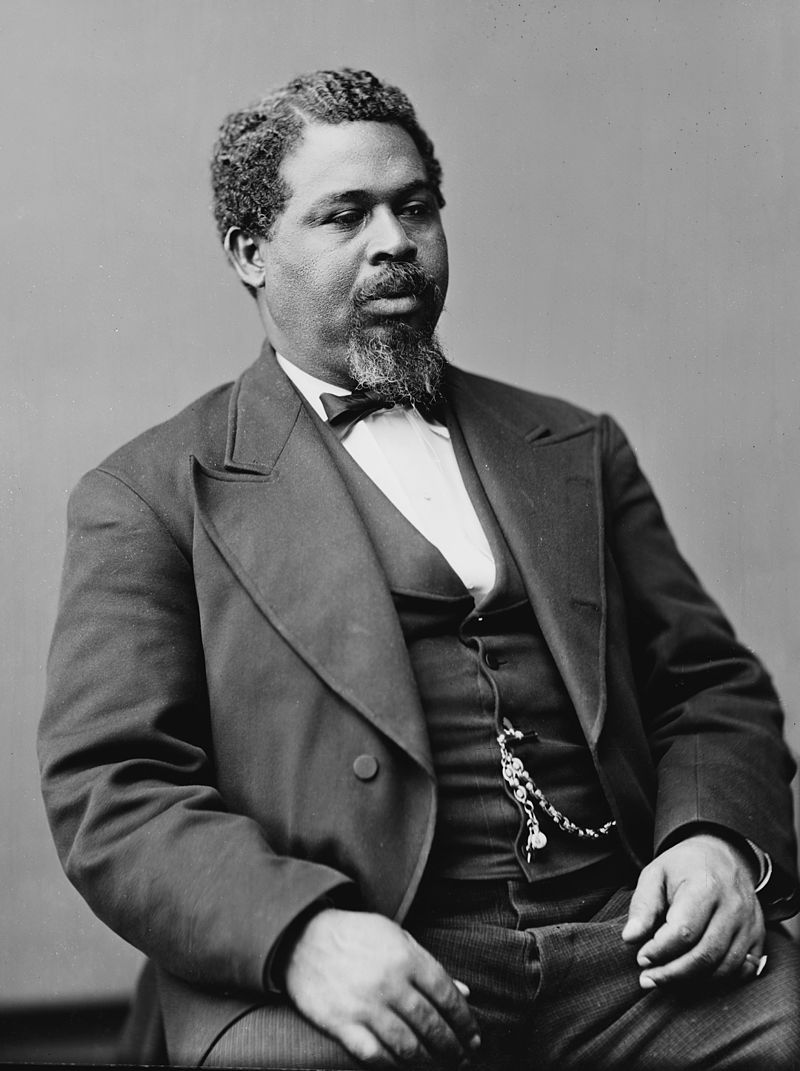Did You Ever Hear the Tale of Robert Smalls? I Thought Not.
In April 1861, seven southern US states had already seceded from the Union, and in Charleston Harbor, SC, the confederacy was about to begin their bombardment of Fort Sumter. An unknown slave, Robert Smalls was nearby, assigned to work as a deckhand on the CSS Planter, an armed transport ship servicing Charleston Harbor. It was a job that he took a liking to and over the course of some months, he learned all the ins and outs of the harbor and also how to navigate and pilot the ship. Those skills would serve him well one year later when he would attempt a daring escape mission.

The Escape
The opportunity to escape presented itself on the night of May 12th 1862. The white officers of the Planter left for shore for the night while the slave crew remained on board. Smalls, who has been planning the details of the escape over the last few months, knew it was time. He dons the captain's uniform and even his captain's signature straw hat to look the part. The crew fires up the boiler and raises the confederate flag and leave the dock.
They make one stop nearby to pick up Smalls’ wife and children, along with four other women, three men and one other child. Through the early morning hours on May 13th Smalls navigates the Planter through all of the checkpoints, giving the designated signals at each one. He blows the ship's whistle as he passes the forts in the harbor just as his captain would have. The Union blockade of the port is seven miles out at sea, and as the Planter approaches, the crew takes down the confederate flag and hoists a white bed sheet in its place.
The USS Onward, the closest Union ship, spots the Planter and is readying to fire its cannons. But at the last possible moment they spot the white flag of surrender. The audacious escape was successful. Smalls, his family, and the rest of the crew on board were now free men and women.
The Aftermath
The Union got a treasure trove of intelligence about Charleston Harbor and troop movements in the area from Smalls. And The Planter entered service in the Union Navy. Smalls became a bit of a folk hero in the North at the time, and his story was partially influential in President Lincoln's decision to allow black men to serve in the Union army and navy.
Smalls was the pilot for various union ships throughout the war, and in December 1963 he returned to the Planter, this time as its official captain.
After the war Smalls returned to Beaufort, SC where he was born and bought the house of his former owner. He was elected to the South Carolina legislature where he introduced legislation that set up the first free public school system in the United States. In 1974 Smalls was elected to represent South Carolina's 5th district in the US House of Representatives, where he would serve two terms.
Smalls died at the age of 75 in 1915. There's a monument for him at his family's burial plot that reads:
"My race needs no special defense, for the past history of them in this country proves them to be the equal of any people anywhere. All they need is an equal chance in the battle of life."